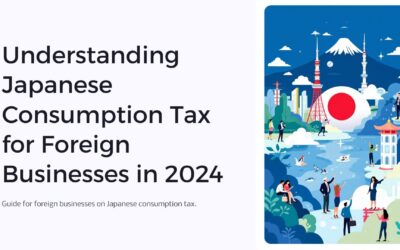Greetings to all our readers! Today, we will explore the intricacies of Japan’s Invoice System and the potential legal challenges it might pose. Businesses must be well-informed about the Fair Trade Commission’s recent guidelines and warnings. Let’s dive in!
—
- Invoice System in Japan: A Brief Overview
- Fair Trade Commission’s Stance
- Potential Legal Issues Highlighted by the Commission
- Unilateral Notifications
- Some businesses, taking advantage of transitional measures, have unilaterally informed their tax-exempt suppliers to decrease the transaction price by an amount equivalent to the consumption tax. Such actions can lead to potential violations of both the Antimonopoly and Subcontract Act.
- Transitional Measures Explained
- Businesses Affected
- Key Takeaways
- Conclusion
Invoice System in Japan: A Brief Overview
Japan’s Invoice System was introduced to simplify and streamline tax-related processes. While it has been beneficial in many ways, certain practices associated with this system can lead to legal complications, especially when dealing with tax-exempt businesses.
—
Fair Trade Commission’s Stance
The Fair Trade Commission has been proactive in issuing guidelines and warnings about the potential pitfalls of the Invoice System. Their primary concern revolves around the interactions between tax-exempt businesses and their trading partners.
—
Potential Legal Issues Highlighted by the Commission
Unilateral Notifications
Some businesses, taking advantage of transitional measures, have unilaterally informed their tax-exempt suppliers to decrease the transaction price by an amount equivalent to the consumption tax. Such actions can lead to potential violations of both the Antimonopoly and Subcontract Act.
Abuse of Dominant Position
Imposing conditions on tax-exempt suppliers can be perceived as abusing a dominant bargaining position. This can potentially violate the Antimonopoly Act, which promotes fair competition. It can also infringe upon the Subcontract Act, safeguarding subcontractors’ interests.
Transitional Measures Explained
These measures were introduced alongside the Invoice System to alleviate the tax burden on tax-exempt and Consumption tax taxable businesses. For instance, from October 1, 2023, to September 30, 2026, taxable companies can deduct 80% of the equivalent input tax amount. This deduction reduces to 50% from October 1, 2026, to September 30, 2029.
Businesses Affected
Several businesses have received warnings due to potential violations. These include illustration production businesses, agricultural product processors, handmade shop operators, personnel dispatch businesses, and electronic manga distribution intermediaries.
—
Key Takeaways
The essence of the matter is clear: while transitional measures might allow specific deductions, businesses must refrain from unilaterally notifying tax-exempt suppliers to reduce transaction prices. Such actions can lead to legal repercussions.
—
Conclusion
As Japan’s Invoice System evolves, businesses must stay updated with the latest guidelines and ensure compliance. Engaging in fair practices and maintaining transparency with partners is essential to avoid potential legal pitfalls.
Thank you for joining us on this exploration of Japan’s Invoice System. Stay informed and navigate the business landscape with confidence!




